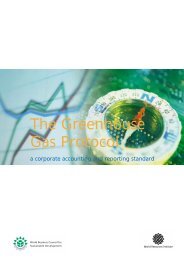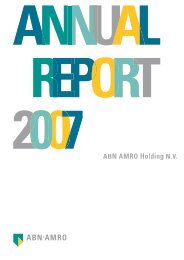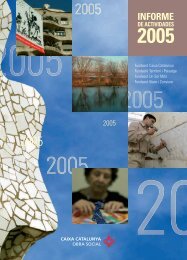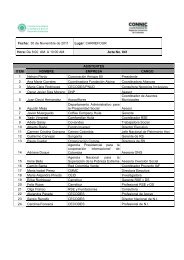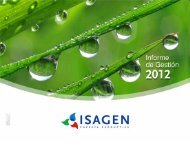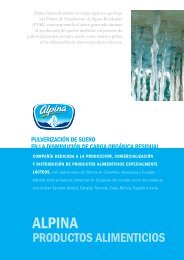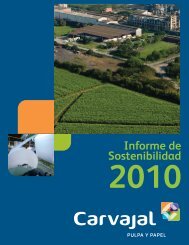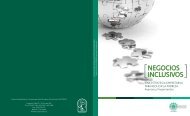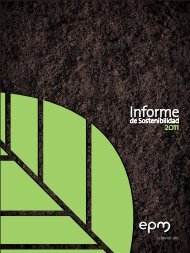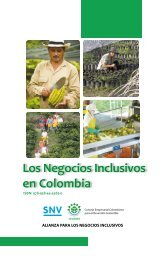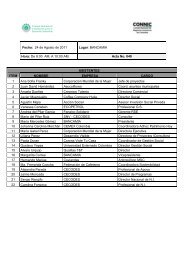Setting new standards - Friends Life
Setting new standards - Friends Life
Setting new standards - Friends Life
Create successful ePaper yourself
Turn your PDF publications into a flip-book with our unique Google optimized e-Paper software.
FINANCIAL STATEMENTS<br />
IFRS FINANCIAL STATEMENTS<br />
EEV SUPPLEMENTARY INFORMATION<br />
Notes to the consolidated accounts continued<br />
27. Insurance contracts continued<br />
(f) Mortality/morbidity rates<br />
Insurance liabilities allow for mortality and morbidity risk by making assumptions about the proportion of policyholders who die or become<br />
sick. Allowance for future mortality has been made using the following percentages of the standard published tables below:<br />
2006 2005<br />
Term assurances:<br />
Smoker 95% TM92(5) 100% TM92(5)<br />
116% TF92(5) 110% TF92(5)<br />
Non-smoker 58% TM92(5) 65% TM92(5)<br />
74% TF92(5) 85% TF92(5)<br />
Other life assurances 80% AM/F80ult 80% AM/F80ult<br />
Unitised life policies 80% AM/F80ult 80% AM/F80ult<br />
Pension policies 35% AM/F80ult 35% AM/F80ult<br />
Individual annuities: in payment 75% RM/FV92U2006* 75% RM/FV92U2005*<br />
Group annuities: in payment 95% PM/FA92U2006* 95% PM/FA92U2005*<br />
*Plus additional 0.25% per annum and 0.5% per annum for individuals and group males only respectively from 31 December 2003 onwards.<br />
Income protection sickness experience is based on recent experience with a 10% margin (2005: 10% margin) for recovery rates, and a 10%<br />
margin (2005: 39% margin) for inception rates. Rates differentiate by smoker status.<br />
Lapse rates are based on recent experience with the equivalent of a 20% margin, ie for each policy the liability is based on the higher of the<br />
results based on 80% and 120% of experience.<br />
(g) Increase/(decrease) in pre-tax shareholder profit from changes in assumptions<br />
2006 2005<br />
£m £m<br />
Mortality and morbidity 127 (20)<br />
Other non-economic assumptions 106 58<br />
Total assumption changes 233 38<br />
This table shows the effect on pre-tax profit of the changes in assumptions described above.<br />
(i) Impacts are reduced to allow for with-profits policyholders sharing in the profits and losses of some products (see (h)).<br />
(ii) Changes in the economic assumptions will be largely offset by corresponding changes in the assets backing the liabilities.<br />
(iii) The most significant item within mortality and morbidity assumption changes relates to morbidity assumptions. Further details of the<br />
impact of changes in morbidity assumptions in 2006 are set out in note 2(h).<br />
(iv) The main item within other non-economic assumption changes in 2006 is the impact of partial adoption of PS06/14, being a reduction in<br />
policyholder liabilities and reinsurance assets, as set out in note 2(h).<br />
(h) Apportionment of surplus between shareholders and with-profits policyholders<br />
Shareholders are entitled to 100% of surplus emerging from companies within the Group, with the exception of surplus emerging in the two<br />
with-profits funds.<br />
(i) The Group’s main With-Profits Fund is within FPLP, and is open to <strong>new</strong> business. The Fund is run on a mutual basis and managed so that<br />
over time the working capital is sufficient to provide most of the risk capital but not to exceed the risk capital margin. The entitlements of<br />
shareholders to share in surplus differ for policies written before and after demutualisation on 9 July 2001.<br />
In respect of pre-demutualisation conventional with-profits policies, shareholders are entitled to one ninth of the cost of bonuses added to<br />
policies. In respect of pre-demutualisation non-profit and unitised business (excluding the investment element), shareholders are entitled to<br />
60% of the surplus arising.<br />
136 <strong>Friends</strong> Provident Annual Report & Accounts 2006



